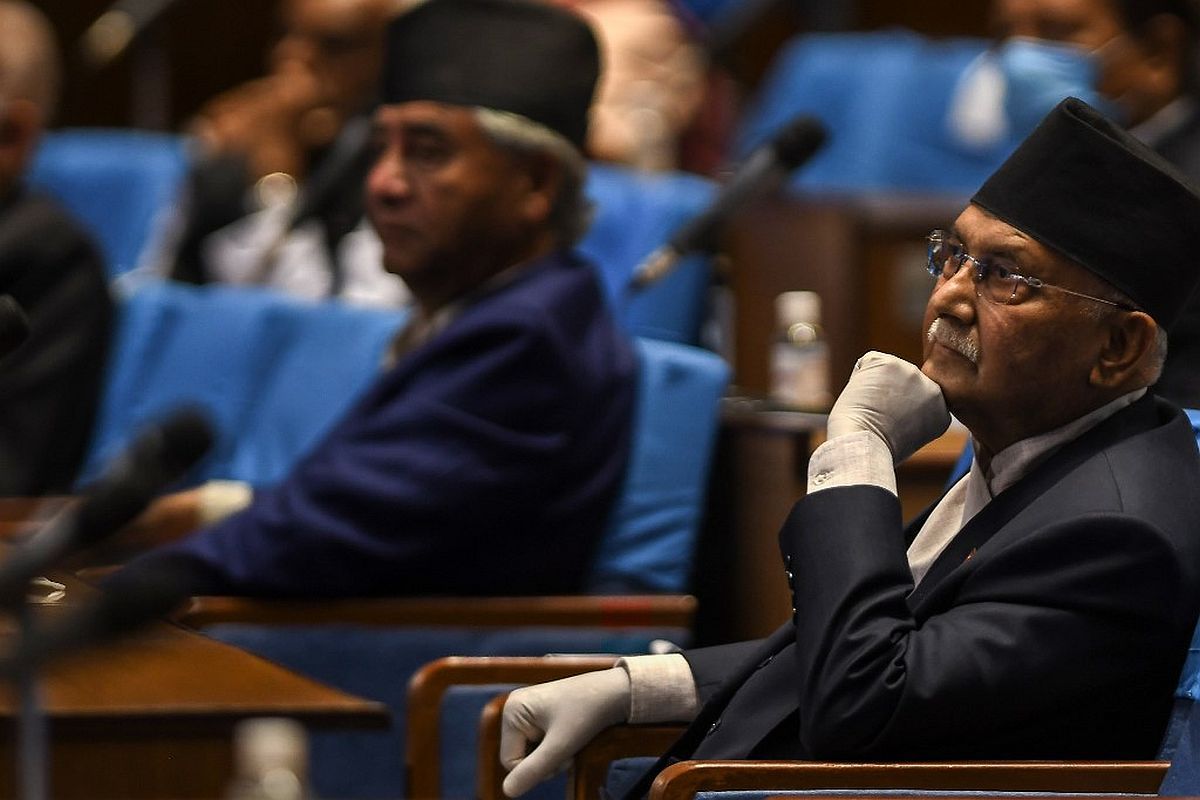EC defends integrity of EVMs in SC, asserts it can’t be manipulated
The Election Commission of India (ECI) defended the integrity of the electronic voting system, asserting that it was not prone to any external interference or manipulations.
The constitutional crisis, that cannot but impinge on governance, has exacerbated this week with the country’s Election Commission refusing to recognise either of the factions as “they had failed to adopt due procedures”.

Nepal's Prime minister KP Sharma Oli. (Photo: AFP)
The road to democracy in Nepal might have been paved with good intentions, but has been marked by poor execution of the agenda. The ruling entity ~ the Nepal Communist Party ~ has not been recognised by the country’s Election Commission for having failed to adopt what it calls “due procedures”.
There are no winners or losers in the tussle that saw Prime Minister KP Sharma Oli being expelled from the NCP’s primary membership. Earlier, Oli had dissolved Parliament even though the Constitution accords no right to the Prime Minister to dissolve the House of Representatives. The constitutional crisis, that cannot but impinge on governance, has exacerbated this week with the country’s Election Commission refusing to recognise either of the factions as “they had failed to adopt due procedures”.
In effect, the Himalayan country is nominally being governed by a party that has lost its relevance. Despite the vertical split, Oli and Prachanda remain chairpersons. The faction led by Prachanda had earlier removed Oli from the post of chairman and had selected Madhav Kumar Nepal in his place.
Advertisement
The faction has now decided to strip Oli of even the party’s general membership. The Prachanda faction has claimed that it ought to be recognised as the official NCP as it commands a majority in the party’s secretariat, standing committee and central committee.
This group has drawn a blank with the Election Commission, which has asserted that is difficult to introduce amendments, changes, or even effect a reshuffle in the records, as demanded by both factions of the NCP. The party suffered a vertical split after Oli decided to dissolve the House of Representatives and announced that midterm elections would be held on 30 April and 10 May. The Communist movement, such as it is in Nepal, has suffered a severe jolt in course of its honeymoon with governance.
There is no ideological conflict here; only a bitter clash of personalities. This is bound to impinge on the party per se and the government which it runs.
Nepal’s personality clash resonates in the echo chambers of the Biden administration as well. And this arguably explains why the US ambassador to Nepal, Randy Berry, met Prachanda, chairperson of the splinter faction of the NCP, on Monday to discuss the priorities of the new administration in the White House.
Markedly, the meeting was arranged during a grave constitutional crisis in Nepal and is, therefore, considered as significant. Berry tweeted after the meeting: “I retiterated the US commitment to strengthening democracies, combating climate change, and uplifting the rights of women and girls around the world.”
On 22 January, Berry had called on Oli to share priorities of the Biden administration. In reality, a lame-duck administration now exists in Kathmandu. What will they know of the revised matrix of the United States who only intra-Communist infighting know? More’s the pity.
Advertisement